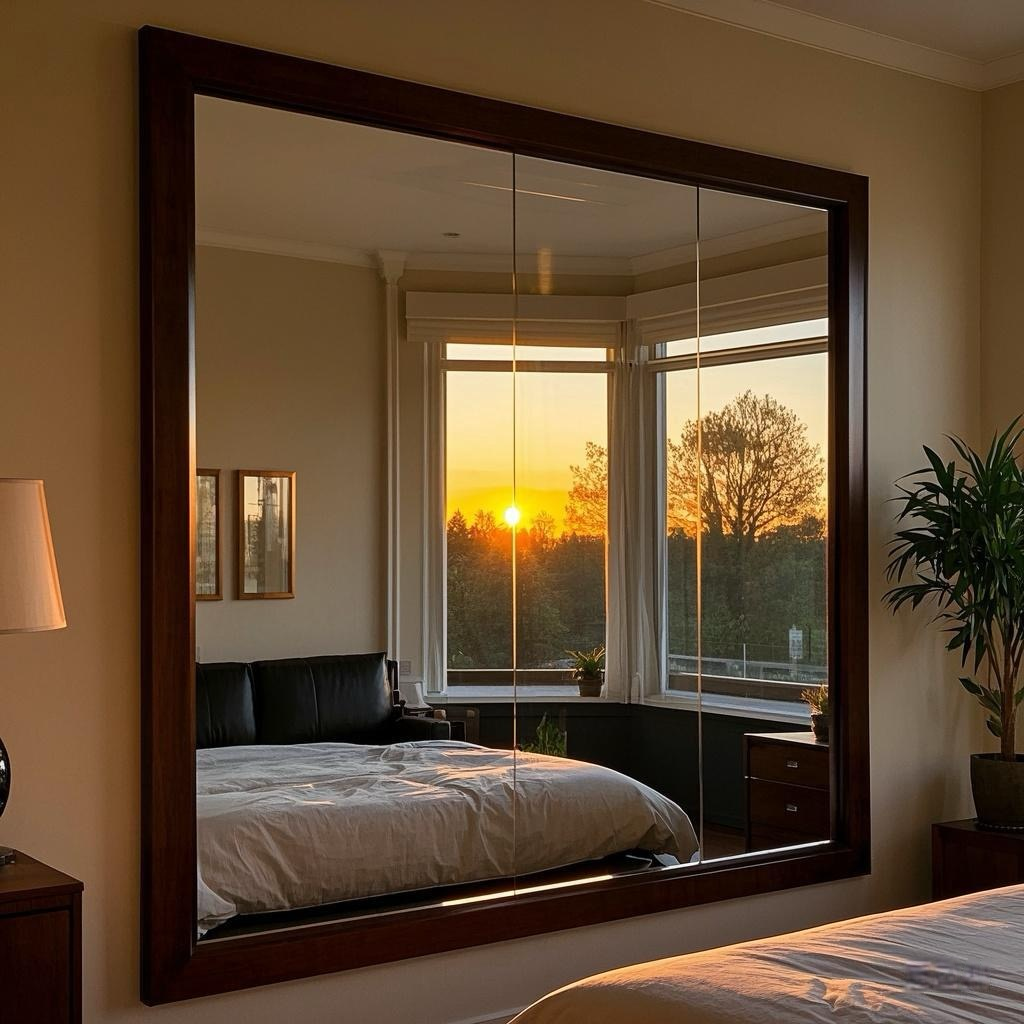Many people like to use mirrors in your house to make the interior look more spacious and elegant. However, it is essential to know that proper mirror Feng Shui placement is the key to attracting good energy. If placed wrongly, it can also magnify the negative side on the flip side. So it would help if you are aware of the dos and don’ts of having a mirror in your house.
1. Doubling Effect of Abundance and Prosperity
Many people like to place a large wall mirror on one side of the dining room wall to reflect the food placed on the table. They consider this placement auspicious because it “doubles” the food on the table, symbolizing the abundance of food. But is it true? However, some Feng Shui consultant advice against this placement.
To benefit more, you should place the mirror in a position that does not “cut” the head or feet of people. In addition, the mirror should be adequately large and preferably come in a piece.
The mirror can reflect good and evil, so do not place receipts or clutter on your dining table!
2. No Spoilt Mirror Please!
Throw away any broken or damaged mirrors because they are considered bad Feng Shui. Always keep the mirrors clean and sparkling for the most favourable results. Apart from Feng Shui, it is also for safety purposes, especially if you have kids.
3. Feng Shui Cure To Mitigate Unfavorable Energy
Many Feng Shui practitioners use mirrors as remedies to fix the challenges of missing corners in the house. They will wrap the Mirrors around the columns to block the “Sha Chi” / “poison arrows” generated from the structure.
4. Reflect Only The Good
It is good to use position the mirrors to reflect good luck symbols to enhance the auspicious energy in the house.
5. Creating a Virtually Spacious Space
You can also use the mirror to open up small and cramped spaces. For example, if you have a dark room, you use mirrors to increase light in the room by placing them on the walls opposite the window.
6. No Mirror in The Bedroom, Unless Hidden
Avoid placing the mirror in the bedroom because it affects the sleep quality of the occupants sleeping in the room, even causing insomnia. If you choose to have a mirror in the room, hide it in the cupboard and only open it when required. Television is also considered one kind of mirror because of its reflective surface, so remove it from the room.
7. Be Careful of The Mirror Reflection
Avoid reflecting negative views like clutter, receipts, or toilet doors because they magnify harmful and unwanted energy.
8. Choose Your Mirror Wisely
Shy away from using a mirror that has distorted or uneven surfaces. Nowadays, people like to use a lot of small mirrors to create mirror tiles. Unfortunately, as you see yourself in them, you will feel distorted and being “cut.”
9. Avoid Imbalanced Energy Field
Do not place mirrors in the position that they reflect into each other. This mirror placement can trap the chi as it bounces back and forth and prevents it from flowing freely.
10. No Mirror At The Mouth of Chi
It is advisable to avoid placing a mirror facing directly towards your main door because the mirror will reflect and bounce the chi back out.
In conclusion, the Feng Shui guidelines for mirror placement are to serve its functional purpose based on your intention. For example, it can be used for personal grooming, reflecting a good exterior or interior view. However, using too many mirrors in the house can create an illusion and confusion that might impact psychological health. So use the mirror sparingly.


